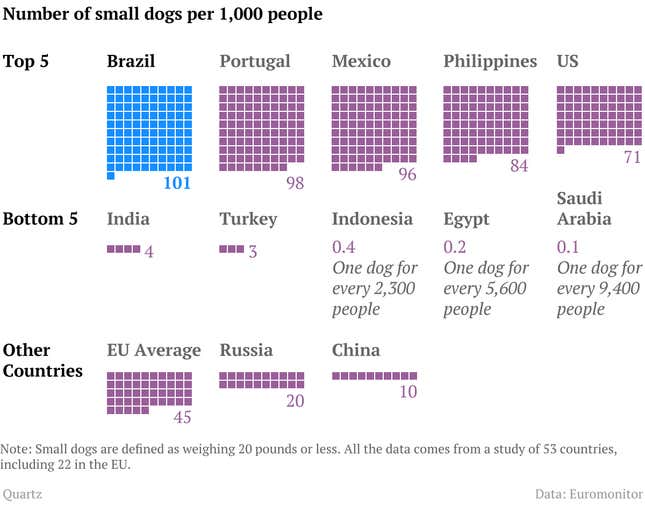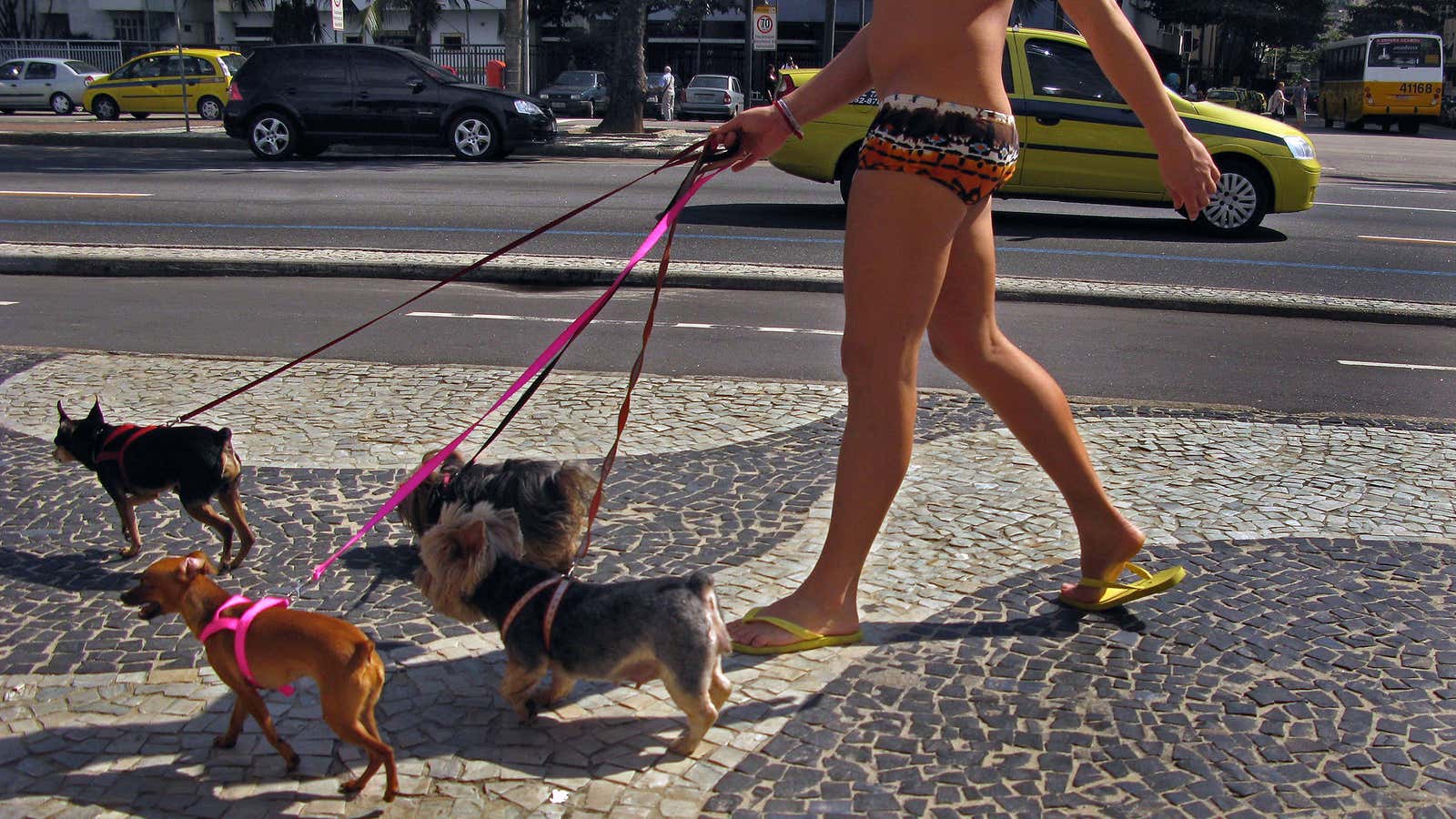Members of Brazil’s rapidly urbanizing middle class are working more, earning more, and having kids later. And to fill their tiny apartments in the meantime, they’re buying more and more dogs as pets. Brazilians, in fact, have nearly 20 million small dogs at home—more per capita than any country in the world, according to data from market research firm Euromonitor International.

Dog ownership, like cocaine use, can be seen as an economic indicator. Higher incomes mean people can actually afford to have pets—not to mention feed them pricey kibbles, send them to groomers and kennels, buy them toys, and flaunt them in dog shows. For that reason, the US remains a paragon of dog-doting, with the world’s biggest pet pooch population, in both absolute and per capita terms.
Elsewhere, however, dog ownership trends are changing, reflecting a new economic reality. We’ll be exploring those changes in a series of posts this week. Call it Quartz Dog Week.
Latin America has a long dog-owning tradition: Some pups were even found buried with their Inca owners around Machu Pichhu. Today, four countries—Chile, Brazil, Argentina, and Mexico—rank in the world’s top 10 for household penetration. The average home in those countries is more likely to have a pooch than not have one.
Brazil tops the list in absolute terms, with nearly 36 million pups—more dogs than Canada has people. Some 55% of those dogs weigh less than 20 pounds (9.1 kilos), as tiny terriers, shih tzus, and chihuahuas fit with the lives of the 85% of Brazilians who live in cramped urban areas. Brazilian dogs are taken in droves to be blessed by priests in honor of St. Francis of Assis; a few are even ferried about in “pet taxis,” taken for dog face lifts, or brought to breed in a doggie “love motel.”
